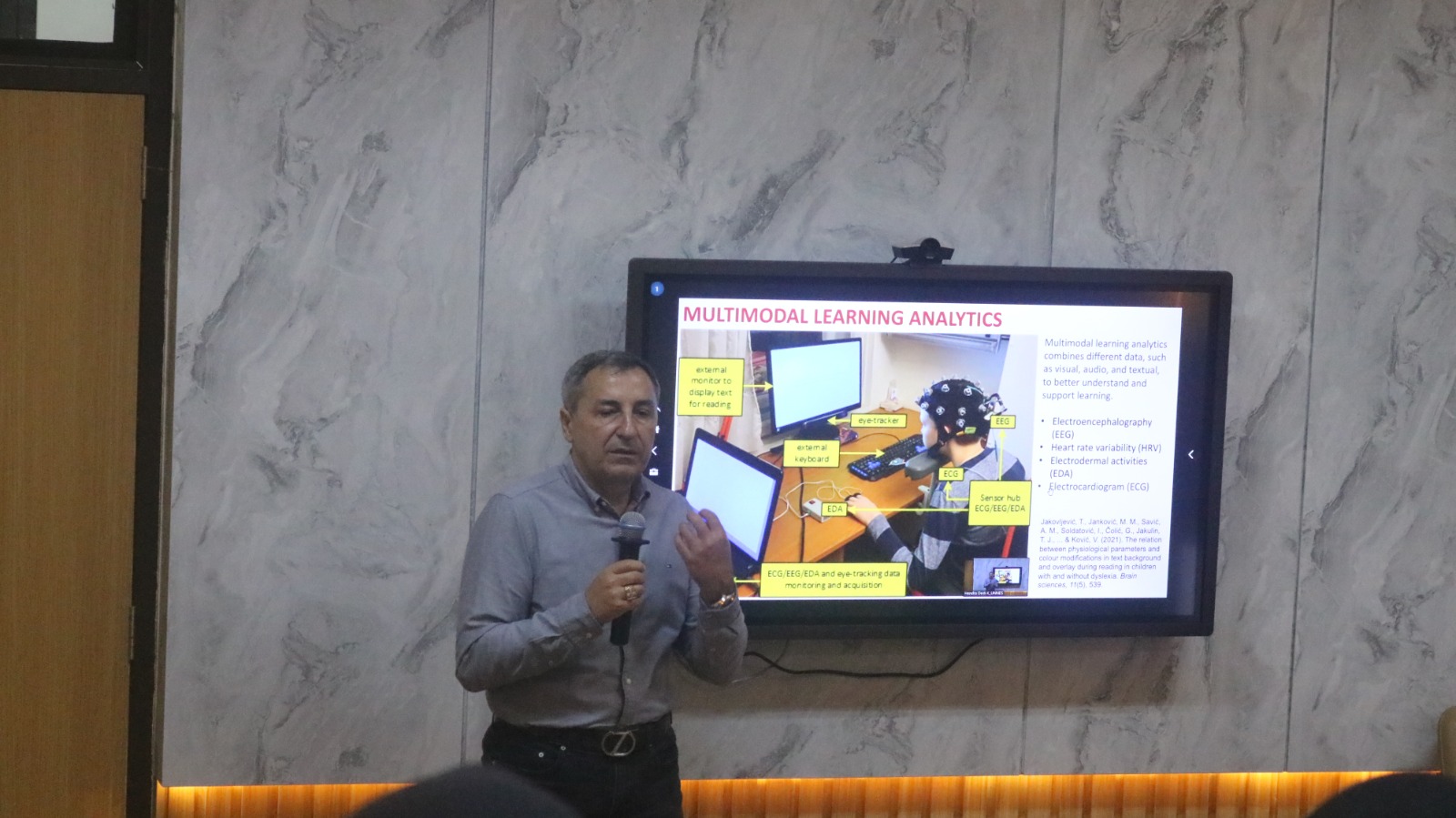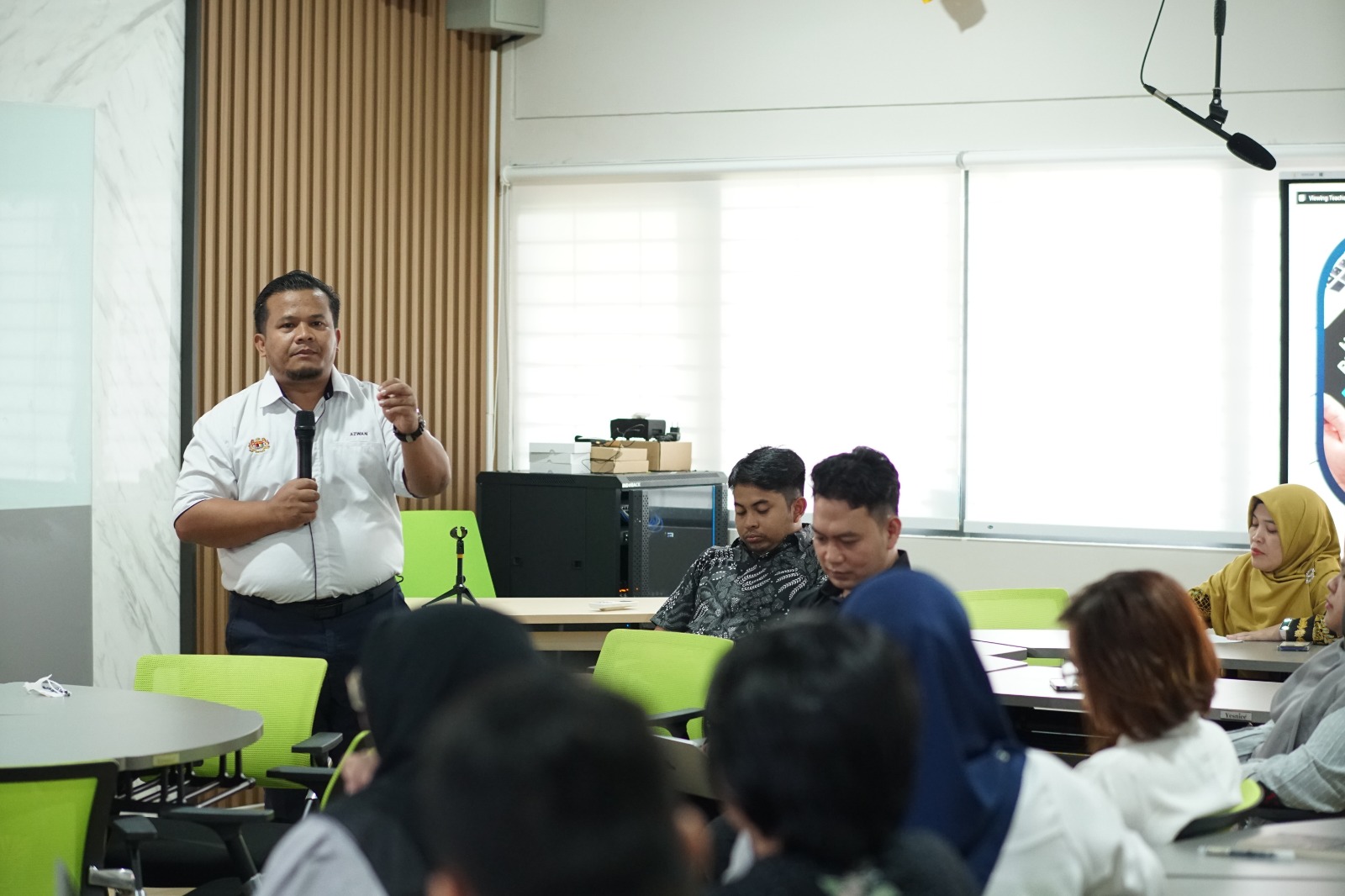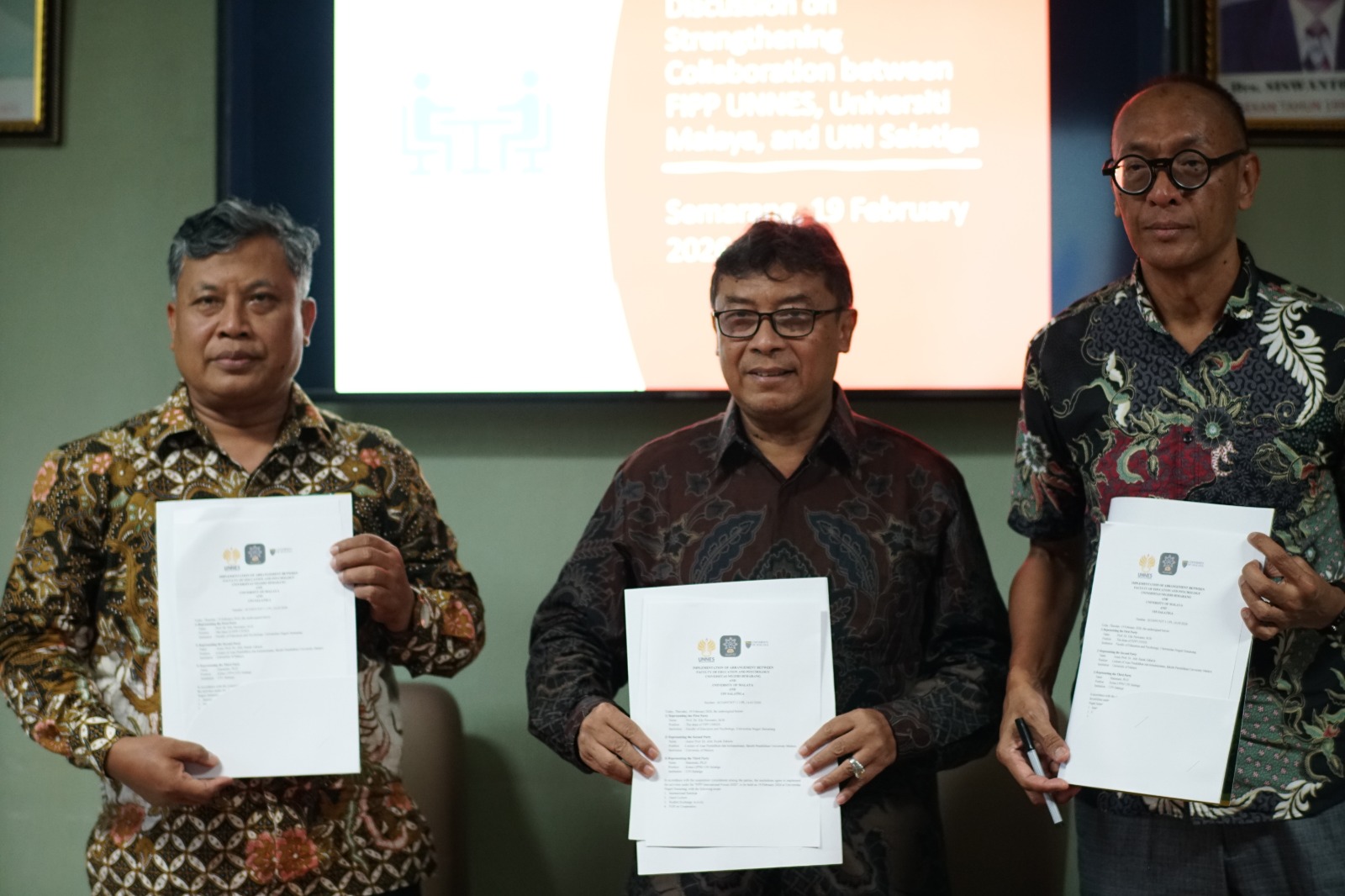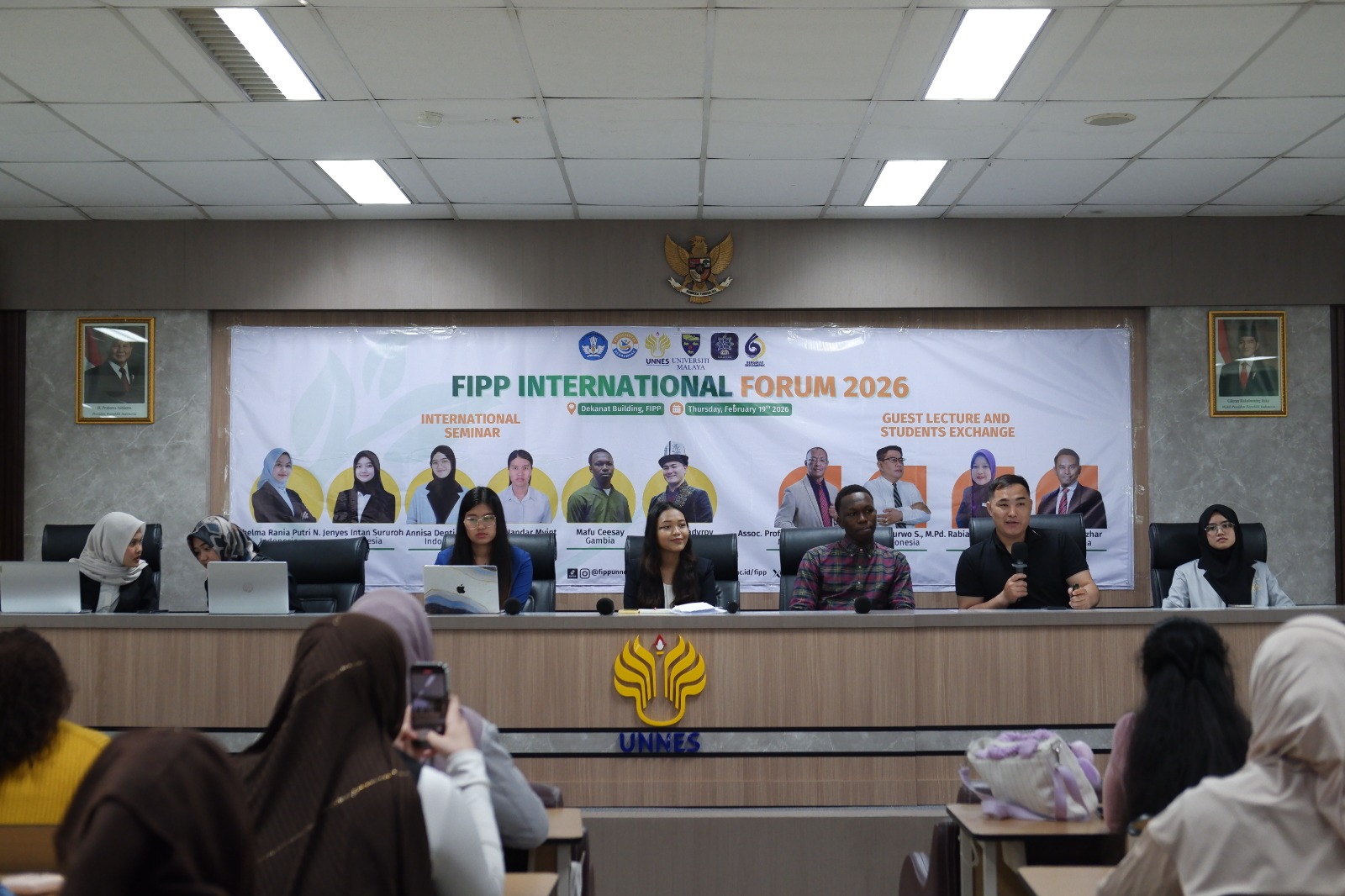Before the event started, there was a welcome speech from Mr. Bagus Kisworo, S.Pd., M.Pd., the chair of the Visiting Professor Learning Media for Non-Formal Education event. He emphasized that participants (students) should utilize technology to enhance their knowledge in the field of education, particularly ChatGPT, but warned against overuse as it could affect motivation. He hoped that participants would understand the potential impact of artificial intelligence (AI), using ChatGPT not just for copying and pasting or for chatting with their lecturers but as a tool to support continuous growth. The event was moderated by Mrs. All Fine Loretha, S.Pd., M.Pd.
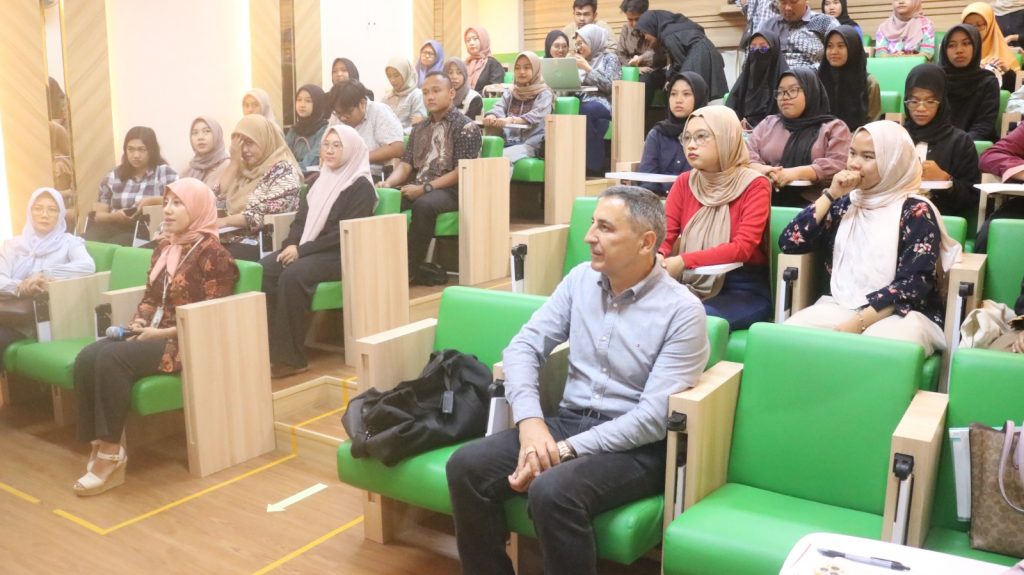
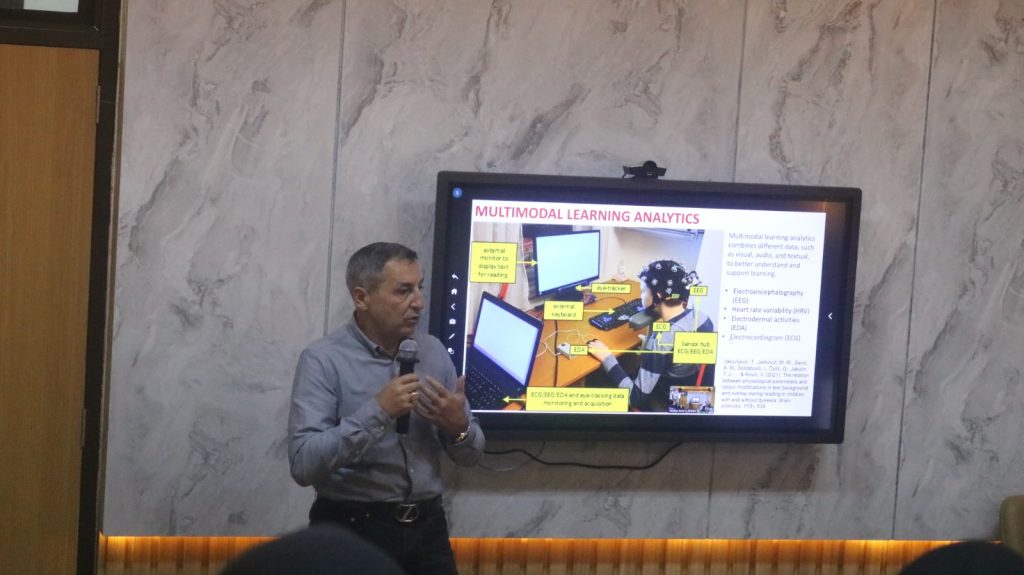
During the event, Professor Daniel explored the significant impact of ChatGPT and artificial intelligence (AI) on digital education. He began with an overview of ChatGPT as a generative pre-trained transformer that has quickly gained popularity for its ability to understand and respond to human queries. The discussion highlighted AI’s potential to enhance educational experiences through personalized learning, adaptive teaching strategies, and efficient assessment methods, while also addressing concerns related to data privacy, accuracy, and academic integrity. Additionally, the presentation delved into the role of learning analytics in improving educational practices and outlined various benefits of ChatGPT, such as aiding in summarization, quiz creation, and lesson planning.
The presentation also acknowledged the challenges posed by AI, including ethical issues and difficulties in detecting AI-generated content. To address these challenges, Dr. Churchill recommended that educators embrace AI technology, promote ethics and integrity, redesign assessments, and provide training on AI literacy. He emphasized the importance of critical literacy, digital communication, and transdisciplinary skills for future educators, underscoring AI’s transformative potential in education while recognizing the necessary adaptations for both educators and students.

